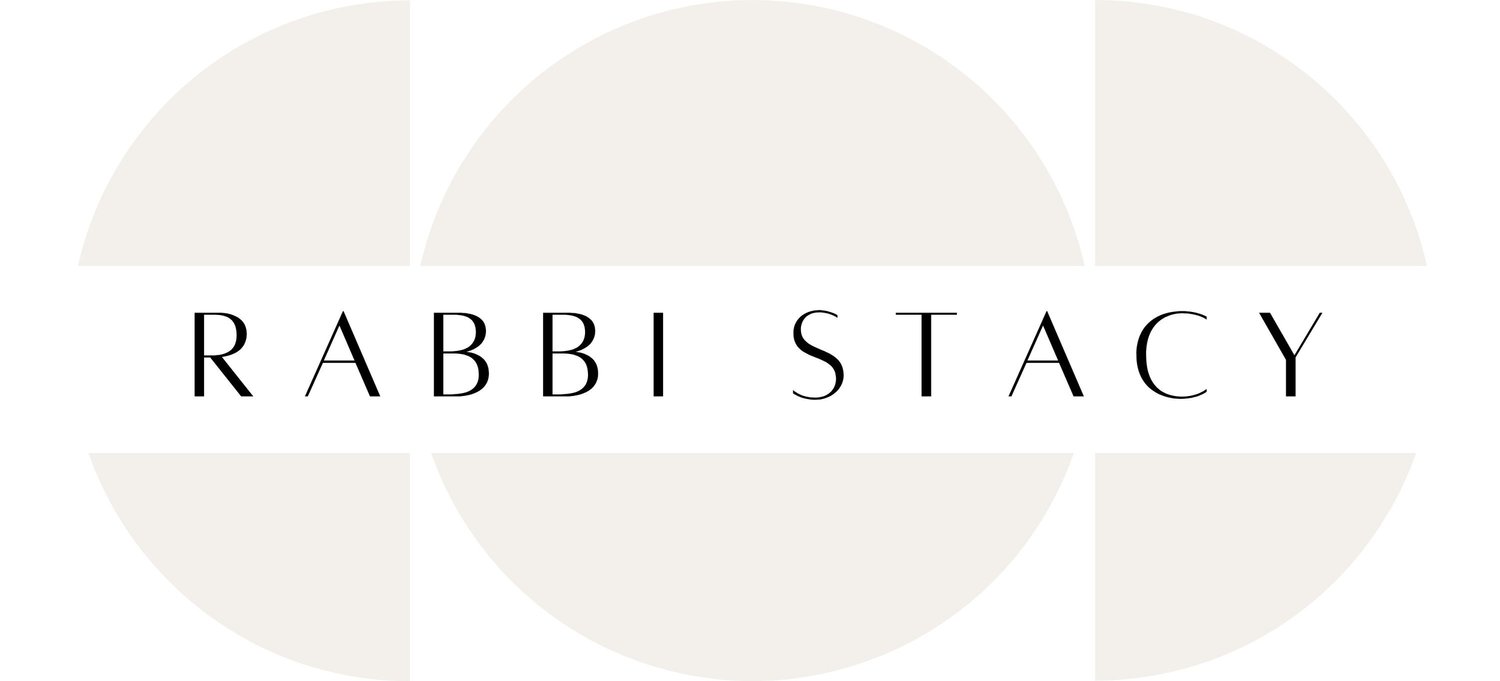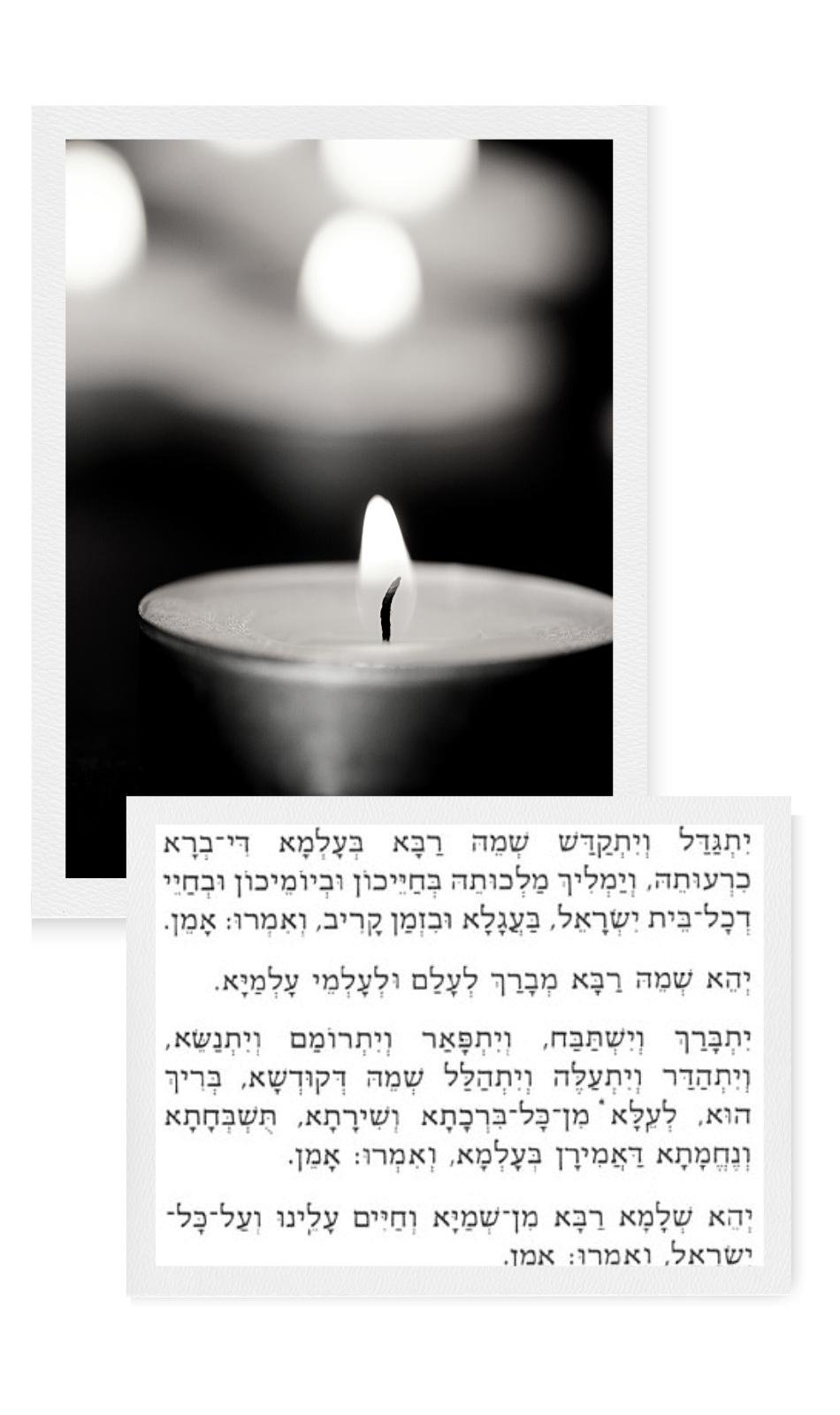Funerals
A funeral is the final opportunity to demonstrate compassion and respect for our loved ones, and their friends and family. When you experience a loss, I am here to listen, and to help you with logistics and planning. I can offer structure and guidance and craft a memorial service that captures and honors the spirit of your loved one.
FAQs
-
Jewish funerals can take place in a variety of locations. Some funerals are exclusively graveside; others occur in multiple locations-starting at the synagogue, or a funeral home, and then proceeding to the cemetery.
-
Traditionally, burial takes place as soon as possible-within 24 hours. This is not always possible and, given the fact that many modern Jewish families are spread out around the country, it usually becomes necessary to wait a day or two until all of the mourners can arrive. Jewish funerals cannot take place on Shabbat or on most Jewish holidays.
-
Tradition teaches that the following people are "officially" designated as mourners: Parent, child, spouse, or sibling. The official mourners will wear a torn black ribbon on their clothes- this is called a Kriah ribbon and is an outward sign of mourning.
-
Jewish tradition teaches that one of the most important mitzvot (commandment) we can perform is helping our loved ones find their final resting place. This is both a symbolic and actual act. Our presence at a funeral is symbolic. Placing earth in the grave of a loved one is a powerful act of service and love.
-
One of the most important mitzvot that we can perform is the act of nichum avelim - comforting mourners. We do this by going to the home of the mourners for shiva (days of designed mourning).
-
Yes, most cemeteries will allow people of all faiths to be buried.

